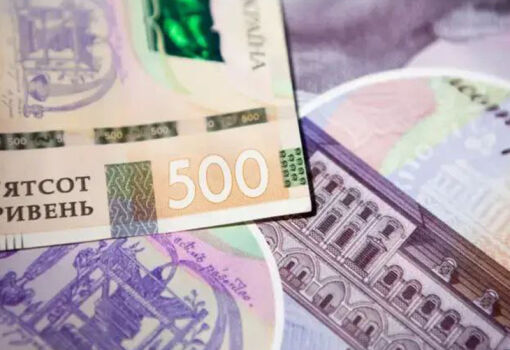
Andrei Jizdan
At the end of May, employees of the State Tax Service participated in a seminar on the taxation of virtual assets. It was organized by the Office of the Co-ordinator for Economic and Environmental Activities of the Organization for Security and Co-operation in Europe.
During the training the participants were presented European experience, both from the legal point of view and from the point of view of tax risks associated with virtual assets. It was about where the income from such transactions is determined, how it is quantified, and what legislative framework is developed for businesses and citizens in order to correctly pay the relevant taxes.
So far, as it is specified in the section “Generalized base of tax practices” on the website of the State Tax Service, Moldovan legislation does not regulate the status of cryptocurrency (virtual currency) and, according to the Law on Payment Services and Electronic Money, does not recognize these instruments as a means of electronic payment. Moreover, such transactions on the territory of Moldova are subject to administrative and criminal liability.
At the same time, cryptocurrency is qualified as property (asset) of a natural person to whom it belongs. Therefore, the object of taxation in this case is investment and financial income received from any sources. But not in Moldova, but outside of it. Inclusive, in virtual currency. It is taxed as capital gains at the rate of 6%.
“The National Bank of Moldova does not recognize this phenomenon, although in fact it exists, and not only among citizens, but also among companies,” says Andrei Jizdan, Director of Jizdan & Partners, Doctor of Economics, Chairman of the Tax Council of the Association of IT Companies. – There are different methods of bringing such assets into the legal field. I will give as an example a real case when in Moldova a company did not buy or receive, but created cryptocurrency. Its owners owned an Internet cafe, and when this business started to shrink, they decided to use it to generate virtual currency.
If we approach this phenomenon from a tax perspective, the currency even had a cost of production. The company used electricity, plus there was depreciation of fixed assets, minus which it had income. Bitcoin then rose in value and the company sold it, receiving U.S. currency in return. The accountant taxed these funds as corporate income at a rate of 12%
“That is, they reflected the sale of bitcoin as income, because the Moldovan legislation does not provide for any other option,” explains Andrei Jizdan. – And in case of a large purchase or investment, the company needs to prove the origin of the money. If income in such currency is received abroad, it is impossible to trace it, the tax authorities do not have the appropriate tool. And here everything depends on the taxpayer himself. Knowing his obligations, he can declare the income”.
In the case of a legal entity, income is taxed at the rate of 12%. And if it is an individual, it falls under the concept of capital gains, and then it is taxed at the rate of 6%. There is also a variant with the receipt of dividends in cryptocurrency. Then this income is taxed, according to the TC, also at the rate of 6%.
The expert notes that there are already quite a few companies and individuals in Moldova, to whom clients pay for services with cryptocurrency. “I assume that there are more of them than those who receive income from the increase in the value of bitcoin,” he continues. – If a programmer has provided a service and is paid in cryptocurrency, he opens an electronic wallet, receives currency on it and sells it on an exchange. And the exchange drops dollars or euros to him either to his PayPal account or to a Moldovan bank account. Thus the taxpayer legalizes cryptocurrency and then uses it for investments or large purchases”.
So far, there is no talk of legislative changes in Moldova, at least officially. “The reason is the NBM,” says the interlocutor. – Because the requirements of the tax legislation the taxpayer does not violate. Except for the fact that he uses cryptocurrency. Therefore, a paradoxical situation turns out. On the one hand, the currency itself is not recognized, but taxes are deducted from it”.
To remove these situations in our practice, it is necessary to create a legislative framework for it. “I assume that for various reasons, possibly including political ones, it is considered a risk today,” comments the specialist.
In the EU itself, the taxation of cryptocurrencies will become more regulated already this year. The MiCA (Markets in Crypto-assets) regulation plays a key role in this. This is the first single EU regulatory framework for cryptocurrency markets. Prior to its adoption, EU member states had different approaches to regulating crypto-assets. The MiCA regulations aim to eliminate these differences and create common rules across the EU. They cover a wide range of market participants, including individuals and entities dealing with cryptoassets, their admission to trading and the provision of related services.
This means that any company involved in issuing or trading cryptocurrency will have to obtain a license. And service providers – to collect information about the recipient and sender of funds, regardless of the amount of the transfer. And e-wallets with a balance of more than €1,000 that are used to store cryptocurrency will have to be verified before performing transactions.
MiCA came into force on June 20, 2023, but its implementation will be phased in until July 2026, during which time general rules are expected to be adopted requiring cryptocurrency exchanges and platforms to provide data on users and their transactions as part of the international exchange of tax information.
According to the statistics of the European Central Bank, the cryptocurrency market in the EU is growing by 30% annually, and the volume of transactions reaches billions of euros.

